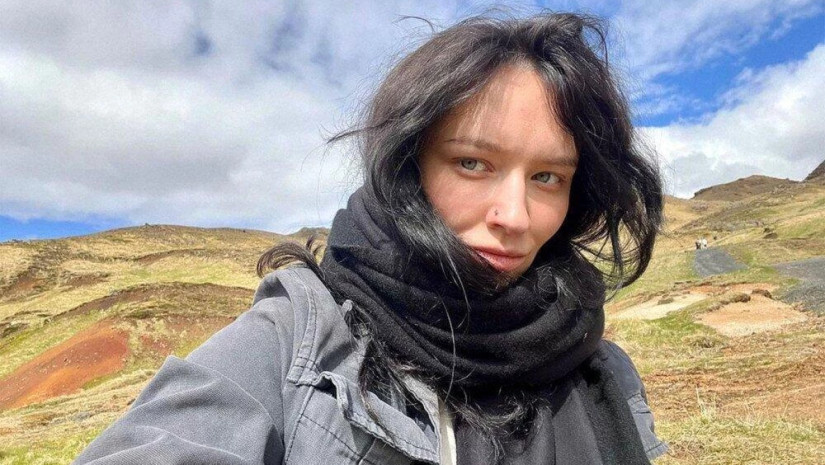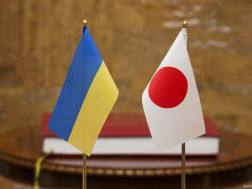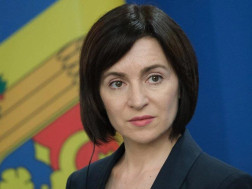A member of Russian protest group Pussy Riot said Monday she was denied entry to Georgia, sparking concerns among the large community of anti-war activists and journalists who fled to the South Caucasus since the invasion of Ukraine.
Olga Borisova was stopped in Tbilisi airport Monday afternoon after returning from Pussy Riot's tour of western Europe to raise money for Ukrainian refugees.
“They just said no and didn’t even ask me any questions,” Borisova told The Moscow Times, adding that she believes she was denounced by a person who sent messages to the Georgian authorities claiming she was planning terrorist attacks.
“As far as I know, it happened because of the denunciation,” said Borisova, who was deported back to Turkey and then to the Netherlands — as she originally flew to Tbilisi from Amsterdam via Istanbul.
Georgia has become a destination of choice for Russian opposition activists in recent years, but the inflow increased significantly following Russia’s attack on Ukraine in February as tens of thousands of Russians fled abroad amid fears over political persecution, martial law and possible conscription.
Tbilisi-based Pussy Riot member Alexander Sofeyev told The Moscow Times the group is attempting to help Borisova resolve the situation.
“We are trying to contact officials and human rights activists to prove the messages were just internet trolling from a person who’s been bullying Olga,” Sofeyev said in a phone interview.
Several activists affiliated with Pussy Riot have left Russia since the start of the war, including Maria Alyokhina and Lucy Shtein, who fled house arrest and are currently on the Russian wanted list. Many members of the group are currently based in Tbilisi.
Prominent Kremlin critic Lyubov Sobol, who was also barred from Georgia in 2021, said Monday that incidents like what happened with Borisova were “assistance to the Putin regime.”
Borisova’s case is the second major example of Russian activists being blocked from entry to Georgia in recent weeks.
Russian blogger and activist Insa Lander has been stuck in the border zone between Russia and Georgia for 10 days after the Georgian authorities twice denied her entry.
Lander, who fled house arrest, has been accused by the Russian authorities of recruiting members of a terrorist organization — charges she rejects as politically motivated. Georgia’s Interior Ministry said the activist was prevented from entering because she allegedly gave “false and contradictory information.”
“One day [Georgian border guards] assure me they really want to help, but the very next day they say I am a ‘problem’ and I have to go back to Russia as nothing threatens me there,” Lander said in a phone interview last week.
“Lander’s case is very complicated. The Georgian authorities are still silent despite the fact that we have made official statements and appealed to the commissioners for human rights,” said Anton Mikhalchuk, a Tbilisi-based activist and manager for the Free Russia Foundation.
There appears to be little logic to the refusals by Georgian border officials, which have targeted both prominent opposition figures – like Borisova or Sobol – as well as activists with little or no public profile and even tourists from Russia.
“It’s very difficult to understand the logic of Georgian authorities. Sometimes famous opposition figures are allowed to cross the Georgian border, and sometimes ordinary people or activists not well known to the public are denied entry,” Pussy Riot member Sofeyev said.
“Activists have to keep in mind such issues might arise in Georgia.”
Independent Russian journalists Mikhail Fishman and David Frenkel were denied entry to Georgia in March after fleeing Russia.
Residents of Russia’s North Caucasus republics, including Chechnya, Ingushetia and Dagestan, have also been barred from entering this year with no official explanation, according to media reports.
But despite the border issues, many of the Russians currently living in Georgia are apparently unconcerned about broader pressure on the emigre community.
Borisova told The Moscow Times that she still hopes to return to Tbilisi.
“I feel safe in Georgia. I don’t think that Georgia is somehow acting pro-Russian in my case. It is a mistake and one which I hope will be corrected so I can go back home,” she said.
Nearly 41,000 Russians have entered Georgia in the nearly four months since the offensive in Ukraine began, activist Mikhalchuk told The Moscow Times, meaning the relative number of those affected is small.
“There’s no evidence that Russian activists are denied entry en masse,” he said, Moscow Times reports.
















